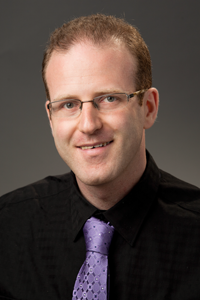Listen to the Disenfranchised

by Toby Reiner, assistant professor of political science
How can we best communicate scientific information about climate change? As a political theorist, I will treat this as a question of how best to encourage changes in attitude and behavior. At a recent Dickinson Four panel discussion, the view among students and faculty seemed to be that—given the overwhelming scientific consensus and grave threat—scholarly modesty ought to give way to confident proclamations of anthropogenic climate change as scientific fact. I’m uncertain about this approach. My concerns are about how effective such confidence is likely to be in “winning the battle of hearts and minds,” not in doubt about the evidence.
The right populist turn in global politics of 2016 reflects a broad sense of disenfranchisement with scholarly expertise—despite high social prestige held by the natural sciences—that those of us committed to sustainability ignore at our peril. Part of this disgruntlement reflects a sense among huge numbers of people worldwide that those in power dismiss out of hand their claims to knowledge. In reaction to this, many are drawn to climate-change denial because it represents an ideology that challenges the dominant worldview of the last few decades, in part by denying all authoritative truth claims.
Acceptance of the need to mitigate climate change is more likely to emerge out of sustained dialogue in which links between sustainability and the concerns of the disenfranchised are interconnected. Without this, I fear that climate change deniers will react as though they are being treated as a basket of deplorables. For political and moral reasons, we should be extremely wary about such labels.